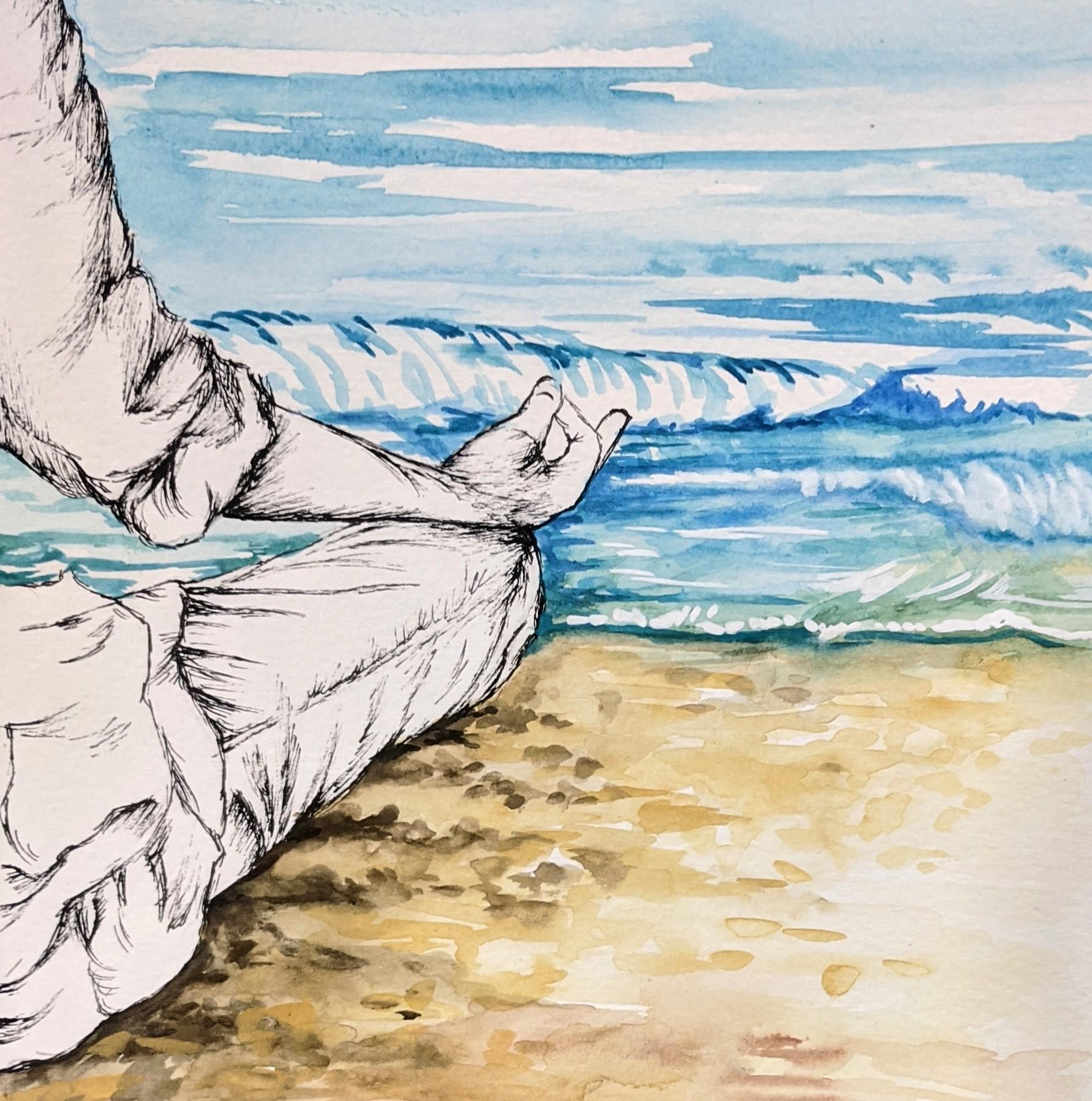Conscious Completion

IMAGE OF THE WEEK
We are grateful to Rupali Bhuva for offering this hand-made painting for this reading.

Youth is peppered with conspicuous firsts. And unless we’re really trying, life's lasts can tend to sneak past, unnoticed. Your last cigarette may have warranted some ceremony. But what about the last swing you’ll ever sit on? The last pear you’ll eat? The last time you’ll watch [your favorite movie] with any real enthusiasm? [...] What about the last time you read your favorite book? How lovingly will you peel your last carrot?
We often take a hierarchical approach to love and meaning – from the inner to the outer circles of the heart, allocating significance to our experiences accordingly. Yet when I imagine seeing the man who repairs my boots for the very last time, what pathos the occasion takes on. I might feed a horse, pat her velvety nose and wander off – but what if I knew she was the last horse I’d ever see? There’s something in my eye, just imagining it. Perhaps proximity to ‘lasts’ affords us an important glimpse of how unsettlingly marvelous it is to be doing or seeing anything at all. Conscious completion allows us to look back across the finite set of moments and realize that each was as significant as the other – that is to say, absolutely, fundamentally significant. “These are the days of our lives”, a very clever man once said. Boy did he really, really know what he was telling us.
We adaptively goal-oriented humans aren’t typically in the business of noticing life, while it’s happening. It is simultaneously our superpower and the greatest tragedy of our existence.
When I was little, my Dad worked in forests, and I often spent my school holidays playing in them. I particularly remember a fantastic house I once made out of sticks. I was so absorbed in construction that by the time it was perfect, it was also time to get in the car and go home. I never even sat in it. I would like to say that back then I was simply in flow and in nature, enjoying the journey with no thought for the destination. But I suspect that even by age 8 I had acquired precisely the opposite habit – becoming so lost in a plan for the future that I forgot to crawl into the beautiful, imperfect present and make the most of it.
Periodically you will read a blog written by or about a young stranger who is dying or dead, urging you to learn from their experience and live life to the fullest, holding your darlings close and appreciating every last cup of tea for the exquisite mystery that it really is. The piece will be viral and you will be among millions to read it, feel momentarily inspired, and then [forget about it]. If you are lucky enough to survive a deadly illness, your own path may yield similar insights. In my experience, these likewise will fade all too quickly. If you live long enough, people you love – perhaps people who are too young to die – will die. When this happens, the intense preciousness of mundane, normal old life will become so painfully clear that you know you will never forget again.
And you might not.
But actually, you still might.
Seeing something isn’t the same as learning it. Anything we want to learn, we are obliged to practice. Contemplative traditions are very clear on this. The insight we gain through peak life experiences doesn’t sustain itself. That’s why the practical purpose of meditation isn’t to hang out permanently in bliss but to willfully rehearse the insights you gained when you were in that altered emotional or cognitive state. Fortunately, we don’t have to sit with our eyes closed in order to practice our love of life (or intentionally recall the occasions when we were thunderstruck by the weirdness of being a conscious entity, pottering around on a planet and cutting our creepy toenails [...] as if it was no big deal.) We are free to take note of the giant miracle we’re living in as often as we want. The more we do so, the closer we weave the fabric of an enchantment that is our most precious inheritance. Through practice alone, the road less traveled becomes the way we meet the world, and then life is sacred, even when you are emptying the dishwasher, or the cat has been sick on the rug.
Every last is a small death, and death itself little more than the last last of all. The more vividly we are able to honor both, the better our chances of really knowing life as it is happening. One day all too soon we will say goodbye to each other and to life for the very last time. But hopefully it won’t be the first time we have really noticed how suspiciously magical it was to be here together, ever, at all.
Rosie Bell went from being an opera singer to copywriter to mindfulness teacher. Along the way, she's "taken time out from assorted careers to survive cancer a few times." Excerpted above from 'Death and Sprinting.'
SEED QUESTIONS FOR REFLECTION: What does conscious completion mean to you? Can you share a personal story of coming in touch with life through a conscious completion? What helps you remember to take note of the giant miracle you are living in?